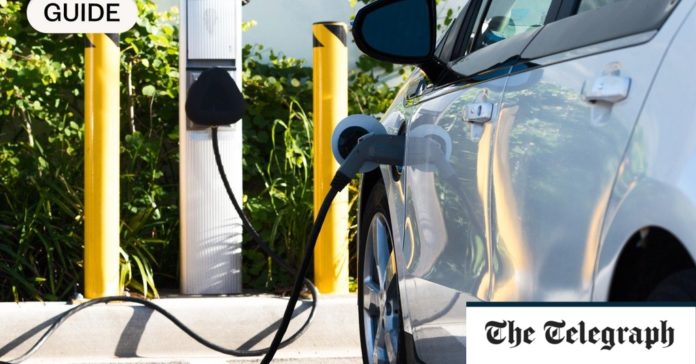Choosing a charger
Picking a charger that’s suitable for your property and your vehicle is another baffling experience.
The electricians recommended one type, saying it was easy to fit and easy to use.
However, neither the charger they suggested nor our car were compatible with the Intelligent Octopus Go electricity tariff we wanted to use, and one of them needed to be. Since we’d already bought the car, we had to find an alternative charger.
After much research, we went for an Ohme ePod, as its wall box is smaller and less noticeable, and it’s compatible with the tariff. This charges 7.5p/kWh during the six hours from 11.30pm to 5.30am, compared to 31.01p/kWh the rest of the time.
Finally getting charger installed
After several weeks and a lot of bureaucracy, we were ready to get the EV charger fitted.
Our quotes, including VAT and £500-odd for the charger itself, ranged from an online quote for £1,078 from Octopus Energy, up to £1,737 from an electrician who actually visited the house.
We ended up paying a local electrician £1,479, and they had to send their smallest employee to fit the wire through the crawl space under our house.
We didn’t qualify for a government EV chargepoint grant worth up to £350 as we don’t live in a flat or rent our home, so had to foot the full bill ourselves.
Was it worth the time, and expense?
Getting an EV charger installed cost us a whole chunk of change. But if we hadn’t done it, charging our electric car elsewhere would be much slower, or more expensive.
If we just connected our car to an ordinary three pin plug and chucked the lead out of a window, it would take 32 hours to fully charge the 52kW battery, according to the AutoTrader calculator. Using our 7.4kW charge point at home is more than three times faster.
There’s also the option of public charge points, which save time, but cost more.
Compared to the 7.5p/kWh we pay for charging our car overnight, our nearest public charger, a 22kW Plug-N-Go version, costs 39p/kW plus a 50p connection fee, while the 60kW GeniePoint charger at our local supermarket costs 79p/kW.
Assuming we rev up our Renault Zoe with the equivalent of a single battery charge every week, we should only pay about £203 a year at home, compared to £1,080 or £2,136 at the nearest public chargers.

